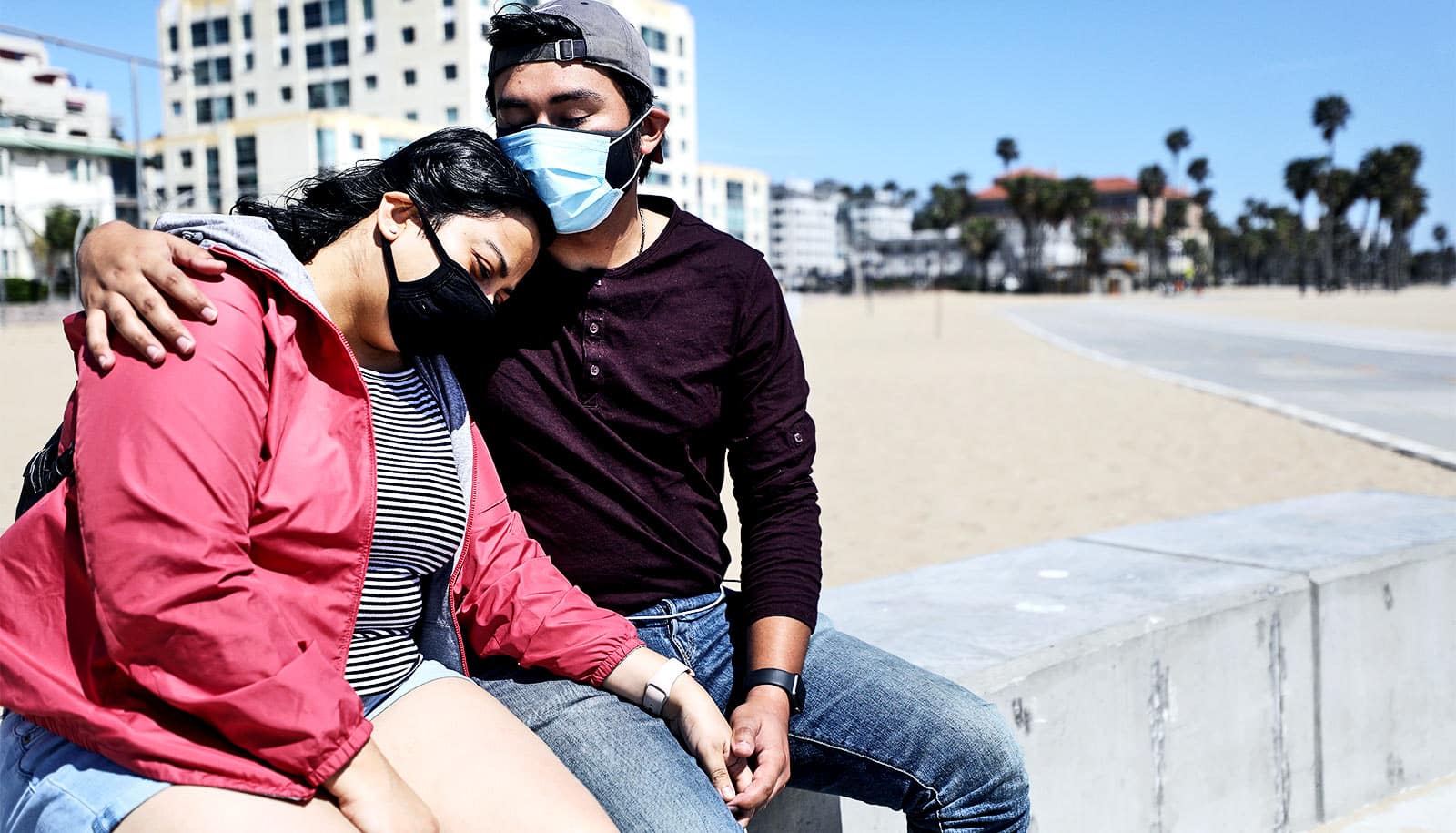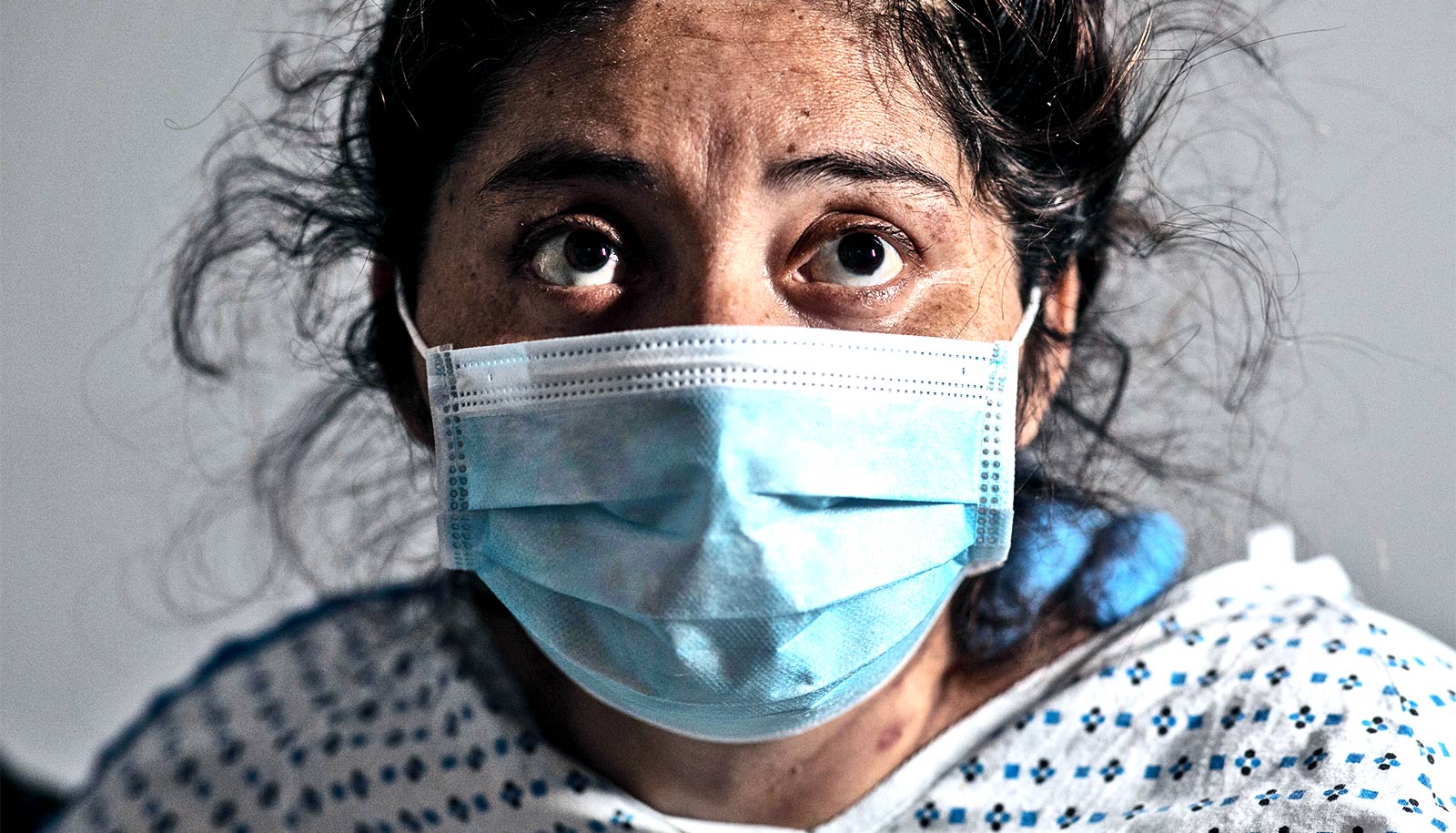The “journey mindset” could prove to be a useful tool for coping with stress and tragedy during the COVID-19 pandemic, according to new research.
Thinking in terms of a journey rather than a destination can help virus survivors and health care providers cope with post-traumatic stress, the researchers say.
Such a mindset can also increase the likelihood that people who learn measures for protecting themselves against the virus—and future contagions—will continue to practice those behaviors.
“As we think about navigating COVID-19 and how it has impacted our lives, a focus solely on the destination can result in a lot of frustration…”
At its core, the journey mindset is about personal growth in response to challenges, points out coauthor Jennifer Aaker, a professor at Stanford University’s Graduate School of Business. “Looking back at negative experiences as well as positive ones fuels progress moving forward.”
In addition to her work with Szu-chi Huang, also a professor at the Graduate School of Business, and research that she and colleagues published in 2019 on learning from negative experiences, she cites psychologist Stephen Joseph’s 2011 book What Doesn’t Kill Us: The New Psychology of Posttraumatic Growth (Basic Books, 2013), and research in the aftermath of the September 11 attacks that shows how soldiering through a catastrophe can lead to personal transformation.
“The people who experience moderate to high levels of post-traumatic stress following a crisis are also the ones who grow the most psychologically as a result of the trauma,” Aaker says.
“This finding is surprising because we so often hear about post-traumatic stress leading to PTSD. But that’s only part of the story. Those who grew were those who were able to make meaning out of tragedy. They dug deeper into themselves to make sense of what happened and how it changed them, which corresponds to research that Aaker has done on how negative experiences stimulate comprehension and boost meaning.
Survivors’ ability to find meaning in trauma could be augmented by adoption of the journey mindset, which can be taught through a regimen of guided visualization, diary-keeping, and other exercises.
The researchers also have contemplated the use of new technology, such as artificial intelligence applications that would learn from users and provide useful feedback and reinforcement during the journey.
More broadly, Huang thinks that visualizing personal progress and valuing small accomplishments along the way could help to sustain those who might otherwise lose hope of ever returning to their normal everyday lives.
“A journey mindset helps us focus on the incremental changes and growth we accumulate along the way.”
“Having a journey mindset can help,” Huang explains. “As we think about navigating COVID-19 and how it has impacted our lives, a focus solely on the destination can result in a lot of frustration, because if a problem is not solved right away and we fail at reaching our destination, all seems lost.
“A journey mindset helps us focus on the incremental changes and growth we accumulate along the way. Perhaps we are connecting with old friends and family more. Perhaps we find a different way to get work done. Perhaps we learn how to cook at home. Perhaps we pick up a new hobby. All of these are skills and lessons that we can carry on even after COVID-19.
“Once people learn how to best cope with these challenges, the journey mindset can reinforce such growth and thus sustain people’s mental health in the future—especially when future triggers or stressors occur.”
Aaker says that as we head into the longer struggle to overcome COVID-19 and return to normal life, it’s important for people to reflect back on the first few months of the outbreak and note what they’ve learned about themselves and others from getting through the experience.
“The journey mindset is about the continuation from our past meaningful successes and failures to the present moment and into the future,” she explains. “Success does not exist in isolation—it has a past and it needs to be sustained into the future.”
The researchers also emphasize that the pandemic journey cannot be completed alone, and that we need others to support and challenge us.
“Learning how to leverage our family and friends helps us sustain our goal success,” Aaker says.
When people get to the point where all they want is to ignore or avoid social information, as documented in research that Huang published in 2018, it is by reaching out and staying connected to their social network that they can regain the motivation to move forward.
The researchers also emphasize that it’s important to recognize that the journey may turn out to be far longer than envisioned if COVID-19 turns out not to be a crisis with a clear-cut resolution, but rather a harbinger of a future in which people increasingly will have to cope with pandemics. If that’s the case, they say that the lessons learned and progress achieved through the journey mindset may help people survive what is to come.
Source: Patrick J. Kiger for Stanford University



